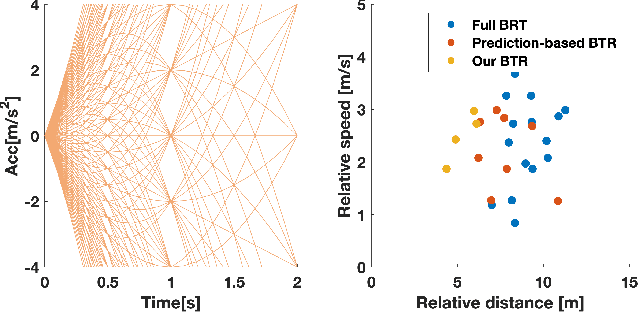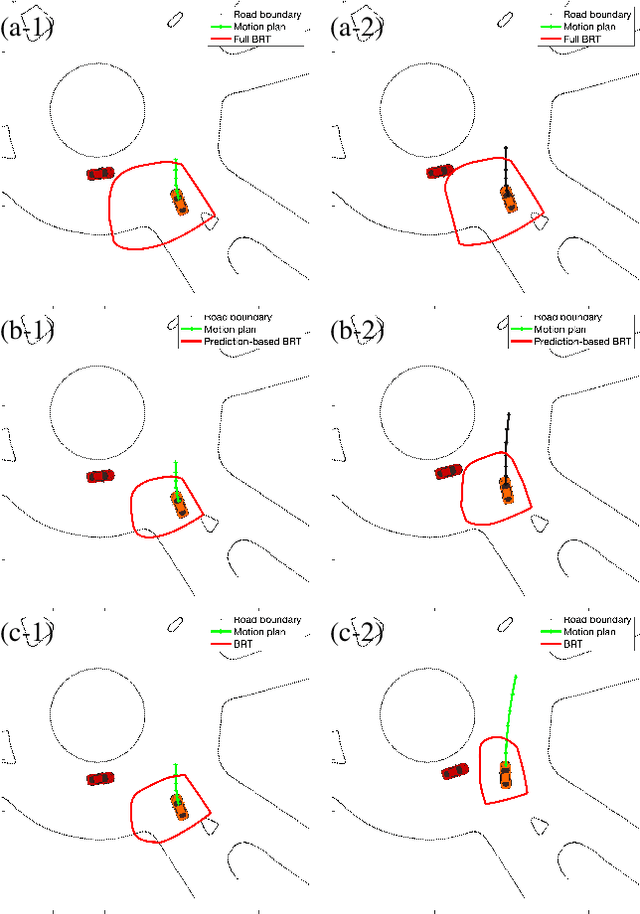Negotiation-Aware Reachability-Based Safety Verification for AutonomousDriving in Interactive Scenarios
Paper and Code
Jun 04, 2021

Safety assurance is a critical yet challenging aspect when developing self-driving technologies. Hamilton-Jacobi backward-reachability analysis is a formal verification tool for verifying the safety of dynamic systems in the presence of disturbances. However, the standard approach is too conservative to be applied to self-driving applications due to its worst-case assumption on humans' behaviors (i.e., guard against worst-case outcomes). In this work, we integrate a learning-based prediction algorithm and a game-theoretic human behavioral model to online update the conservativeness of backward-reachability analysis. We evaluate our approach using real driving data. The results show that, with reasonable assumptions on human behaviors, our approach can effectively reduce the conservativeness of the standard approach without sacrificing its safety verification ability.
 Add to Chrome
Add to Chrome Add to Firefox
Add to Firefox Add to Edge
Add to Edge